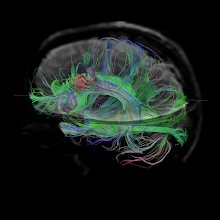The name really says it all, I think...but just for fun, I suppose I'll go into a bit more detail.
It's hard for us to imagine today, with printed books and the internet, but there was a time when one copy of a manuscript was all that existed. And that period was the Dark Ages. (They're called 'dark' - I believe - not because someone turned out the sun, but because so little is known about the period. When only one informative scrap of paper...well, parchment...exists, it's awfully easy for that scrap to get lost over the years. I mean, you should see my desk, and that's only been eight months.) Maybe it's just me who has some trouble wrapping my mind around that idea, but hmmmm.
Anyway, it's in large part thanks to Venerable Bede that we know anything about the Dark Ages at all. Bede was born in Northumbria in the early 670s and entered a monastery before he turned ten. After surviving a plague breakout in 686 that killed all but two of the monks, Bede rose rapidly through the ranks of the ecclesiastical system.
At the time (and for a long time to follow) the Church was not just a place to pray, although it was certainly that. Monasteries also functioned as publishing houses and schools. It was in this last shelter against the darkness of ignorance and anarchy pouring across Europe that Bede gained the title 'Father of English History'. Working at times for kings, bishops, or schoolchildren, Bede wrote over sixty books in his lifetime, from grammar and geology to science and music to histories of saints and of the local English people. His most famous work is The Ecclesiastical History of the English People...although my personal favorite title is definitely The book of the life and passion of St Anastasius, which was ill translated from the Greek, and worse amended by some unskillful person, I have corrected as to the sense.
For his time, Bede was quite cosmopolitan. He traveled fairly extensively, he was literate and well-read (Okay, tangential rambling: who was the last person to have read all the books published - either in their lifetime, or through all time? I swear I heard somewhere that this person existed...only now I can't find it. Right, sorry...carry on.), he kept up quite a correspondence with several important and influential Europeans.
And we have him to thank for a good bit of what we know about our past.
Monday, April 5, 2010
Subscribe to:
Post Comments (Atom)




No comments:
Post a Comment